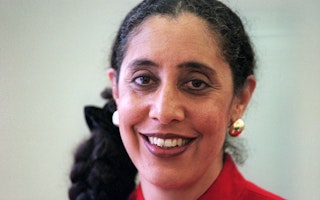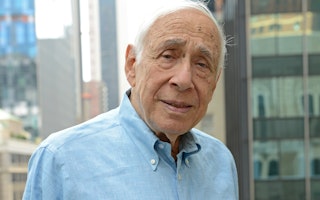Q&A: Seizing the Moment to Tackle the School-to-Prison-to-Deportation Pipeline

Latinos are often overlooked in debates about criminal justice reform. Maritza Perez, a 2015 Soros Justice Fellow at the Mexican American Legal Defense and Educational Fund (MALDEF) who works to improve educational opportunities and outcomes for justice-involved Latinos and at-risk youth, spoke to Thomas Watson, senior editorial advisor, about her hopes to change that.
September is Hispanic Heritage Month. How are you seeking to seize the moment?
Hispanic Heritage Month is not just a celebration of our culture. It’s also a time for activists to get together to talk about important issues facing our community and brainstorm policy priorities. For example, one of the big gatherings this month is the Congressional Hispanic Caucus Institute’s Public Policy Conference in Washington, DC, which for the first time will feature a criminal justice reform panel. I lobbied hard for it, and am excited it’s happening.
What do you hope to accomplish?
Many people, including people in the Latino community, have misconceptions about mass incarceration. There’s an assumption that if you’re in jail, you’re a bad person—even though our very presence as people of color is often criminalized. We need to take away the stigma and get people talking about the fact that a significant portion of the prison population is Latino. Latinos account for 17 percent of the U.S. population, but around 33 percent of the federal prison population. Today, one out of every six Latino males and one out of every 45 Latina females can expect to go to prison in their lifetime. Educating people about mass incarceration, and how discriminatory laws and practices created our disproportionate representation in the system, is the first step towards addressing these challenges.
How did you become an activist?
My family came to the U.S. from Mexico when I was an infant. I grew up in a small town in rural Nevada that was very conservative and harbored a lot of hostility towards people of Mexican descent. On top of this, my family has had to navigate both the immigration and criminal legal systems. Ever since I can remember, I’ve been super vocal about justice for marginalized people, and ending discrimination and sexism, because that’s been my struggle. This passion for justice eventually led me to law school, and on to my current work.
What aspects of criminal justice reform are most important to you?
Criminal justice reform is a racial justice issue and one of the most significant civil rights dilemmas of our time. It’s important for me to ensure that the unique experiences of Latinos in the justice system are not overlooked by well-intentioned advocates, as well as those hostile to our work. A lot of my day-to-day work is policy advocacy, seeking to end the school-to-prison pipeline and improving educational outcomes for youth in the juvenile justice system. Actually, before law school, I was an elementary school teacher; I’ve been a longtime proponent of quality education for all.
In my current role, I work with other civil rights organizations and activists in Washington, DC, and around the country, and with government agencies like the Department of Education. This work is important because when kids get in trouble in school, they’re more likely to have contact with the juvenile justice system. For non-citizen youth, the consequences are so much worse because contact with the criminal legal system can lead to deportation. We call this trajectory the school-to-prison-to-deportation pipeline.
I’ve also been fortunate enough to work on a range of other criminal justice issues, including opposing the death penalty, which disproportionately affects Latinos and black Americans; advocating for clemency for Latinos; highlighting particular problems Latinos encounter in the criminal legal system, like lack of quality legal representation and language barriers; reforming drug laws that send many Latinos to prison or on a fast-track to deportation; and educating stakeholders on the immigration consequences of criminal convictions and the privatization and criminalization of immigrant detention.
How has the current political climate affected your work?
There’s no question that harsh anti-immigrant rhetoric has made it more difficult for us to do our jobs. It’s been a unique experience working at MALDEF—the leading Latino legal voice on civil rights—in this political climate because I’ve been especially attuned to the various attacks on our community. Hate crimes against Latinos have been rising and there’s been more anti-Latino sentiment spreading across the country. It makes our work that much more important, but also challenging. It contributes to the feeling that if you’re Latino, nobody cares, and if you’re Latino with a criminal conviction, you’re not even a priority. But that just sharpens my determination. The more I do this work, the more I realize people are hungry for Latino advocates. I won’t be stopped.
The Mexican American Legal Defense and Educational Fund is a grantee of the Open Society Foundations.

